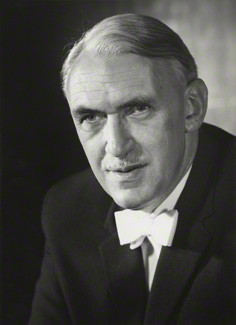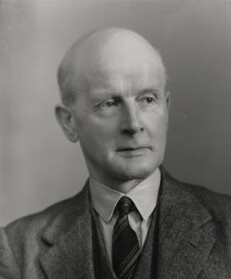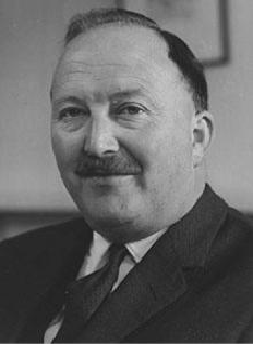
Phonics is a method for teaching reading and writing to beginners. To use phonics is to teach the relationship between the sounds of the spoken language (phonemes), and the letters (graphemes) or groups of letters or syllables of the written language. Phonics is also known as the alphabetic principle or the alphabetic code. It can be used with any writing system that is alphabetic, such as that of English, Russian, and most other languages. Phonics is also sometimes used as part of the process of teaching Chinese people to read and write Chinese characters, which are not alphabetic, using pinyin, which is alphabetic.
University College London is a public research university in London, England. It is a member institution of the federal University of London, and is the second-largest university in the United Kingdom by total enrolment and the largest by postgraduate enrolment.

Science education is the teaching and learning of science to school children, college students, or adults within the general public. The field of science education includes work in science content, science process, some social science, and some teaching pedagogy. The standards for science education provide expectations for the development of understanding for students through the entire course of their K-12 education and beyond. The traditional subjects included in the standards are physical, life, earth, space, and human sciences.

Alan Louis Charles Bullock, Baron Bullock, was a British historian. He is best known for his book Hitler: A Study in Tyranny (1952), the first comprehensive biography of Adolf Hitler, which influenced many other Hitler biographies.

The UCL Institute of Education (IOE) is the faculty of education and society of University College London (UCL). It specialises in postgraduate study and research in the field of education and is one of UCL's 11 constituent faculties. Prior to merging with UCL in 2014, it was a constituent college of the University of London. The IOE is ranked first in the world for education in the QS World University Rankings, and has been so every year since 2014.

The Galton Laboratory was a laboratory established for the research of eugenics, later to the study of biometry and statistics, and eventually human genetics based at University College London (UCL) in London, England. The laboratory was originally established in 1904 and existed in name until 2020.
Sir Ti-liang Yang, was a Hong Kong judge. He was the Chief Justice of Hong Kong from 1988 to 1996, the only ethnic Chinese person to hold this office during British colonial rule.
The National Curriculum for England is the statutory standard of school subjects, lesson content, and attainment levels for primary and secondary schools in England. It is compulsory for local authority-maintained schools, but also often followed by independent schools and state-funded academies. It was first introduced by the Education Reform Act 1988 as simply The National Curriculum and applied to both England and Wales. However, education later became a devolved matter for the Welsh government.

Synthetic phonics, also known as blended phonics or inductive phonics, is a method of teaching English reading which first teaches letter-sounds and then how to blend (synthesise) these sounds to achieve full pronunciation of whole words.
Sir Michael James Paul Arthur FMedSci is a British academic who was the tenth provost and president of University College London between 2013 and January 2021. Arthur had previously been chairman of the Russell Group of UK universities and the vice-chancellor of the University of Leeds between September 2004 and 2013.
In the United States, math wars are debates over modern mathematics education, textbooks and curricula that were triggered by the publication in 1989 of the Curriculum and Evaluation Standards for School Mathematics by the National Council of Teachers of Mathematics (NCTM) and subsequent development and widespread adoption of a new generation of mathematics curricula inspired by these standards.

The third-oldest university in England debate has been carried out since the mid-19th century, with rival claims being made originally by Durham University as the third-oldest officially recognised university (1832) and the third to confer degrees (1837) and the University of London as the third university to be granted a royal charter (1836). These have been joined more recently by University College London as it was founded as London University (1826) and was the third-oldest university institution to start teaching (1828) and by King's College London. Most historians identify Durham as the third-oldest, following standard practice in how a university is defined and how this is applied historically, although the popular press is more divided.

University College London (UCL) was founded on 11 February 1826, under the name London University, as a secular alternative to the strictly religious universities of Oxford and Cambridge. It was founded with the intention from the beginning of it being a university, not a college or institute. However its founders encountered strong opposition from the Church of England, the existing universities and the medical schools which prevented them from securing the Royal Charter under the title of "university" that would grant "London University" official recognition and allow it to award degrees. It was not until 1836, when the latter-day University of London was established, that it was legally recognised and granted the authority to submit students for the degree examinations of the University of London.
Harold Rosen was an American-born British educationalist who lived in the UK for most of his life. His particular field was teaching English, and he eventually became an academic at the Institute of Education, part of London University.

Sir Frederick Clarke was an English educationist who was Director of the Institute of Education in the University of London between 1936 and 1945.
Making Mathematics Count is the title of a report on mathematics education in the United Kingdom (U.K.).

James Nimmo Britton was a British educator at the UCL Institute of Education whose theory of language and learning helped guide research in school writing, while shaping the progressive teaching of language, writing, and literature in both England and the United States after the Dartmouth Conference (1966) of Anglo-American English educators.

Elementary schools were the first schools in England and Wales intended to give a basic education to the children of working class families. At the start of the 19th century, the only schooling available to these young people was run by private concerns or by charities, and was often of a very poor standard. In the first decades of that century, a network of elementary schools was established by societies backed by the Christian churches. In an effort to expand this "voluntary" system, the government made grants available to these societies, initially for new school buildings but later towards their running costs. It became apparent that although this system worked reasonably well in rural communities, it was far less successful in the rapidly expanding industrial cities, and that Britain was falling behind the rest of the developed world. In 1870, an act of parliament established elected school boards throughout England and Wales, which were empowered to create secular "board schools" funded by local taxation where there was no provision by the church societies. Further legislation made school attendance compulsory, and eventually free of charge. The problem of how the education of older pupils should be managed was solved by abolishing school boards in 1902 and passing responsibility to local councils. Elementary schools were eventually replaced in 1944 by the system of primary and secondary education.
Arthur Noble Applebee was a researcher and professional leader in United States secondary education. He obtained his doctorate at the University of London in 1973 and held professorships at Stanford University (1980–1987) and the University at Albany, State University of New York (1987–2015). Active in national policy, he assisted in validating the Common Core State Standards and co-authored fourteen of the National Assessment of Educational Progress's "Reading Report Cards" documenting student achievement. He also documented the state of the teaching of writing in U.S. Secondary Schools in a number of studies. In addition to his scholarly work, he also was lead author/editor on numerous series of English textbooks for both primary and secondary schools, comprising at least 35 volumes. Applebee served as editor from 1984 to 1991 of Research in the Teaching of English, as president of the National Conference on Research in Language and Literacy and as a member of the Validation Committee for the Common Core State Standards.

John Downing (1922–1987) was a British educational psychologist who started his career as a teacher then worked as an academic from 1960 until his death in 1987. He published over 300 academic papers in his 27-year academic career, specialising in both how children read and how they learn to read. His three main fields of study were the initial teaching alphabet, the psychology of reading and the comparison of reading methods across different languages and cultures. His principle works in each of these fields were Evaluating the Initial Teaching Alphabet, Reading & Reasoning and Comparative Reading. Fundamentally, Downing was an educational psychologist and his main lifetime achievement was the formulation of the cognitive clarity theory of learning to read.












